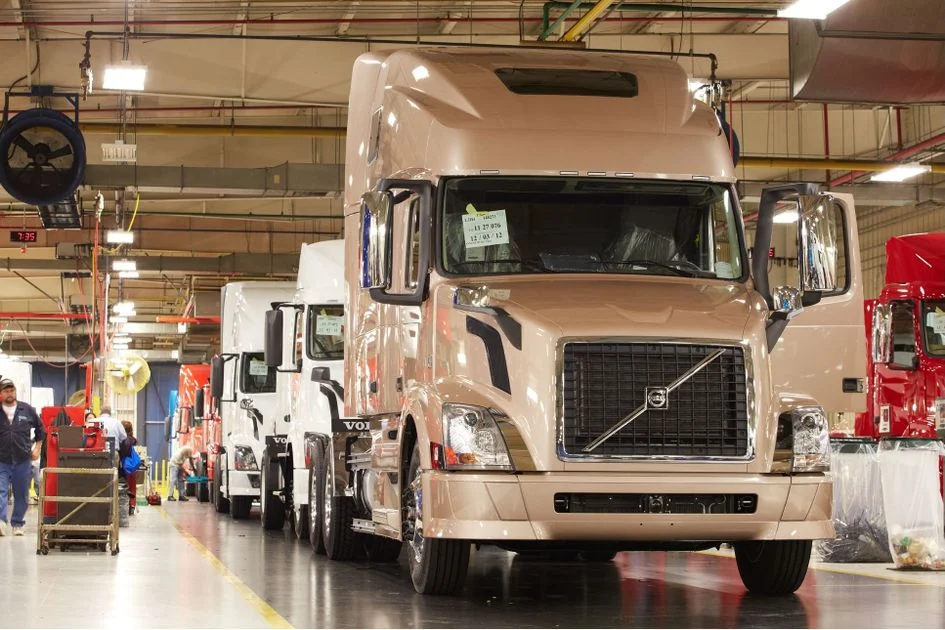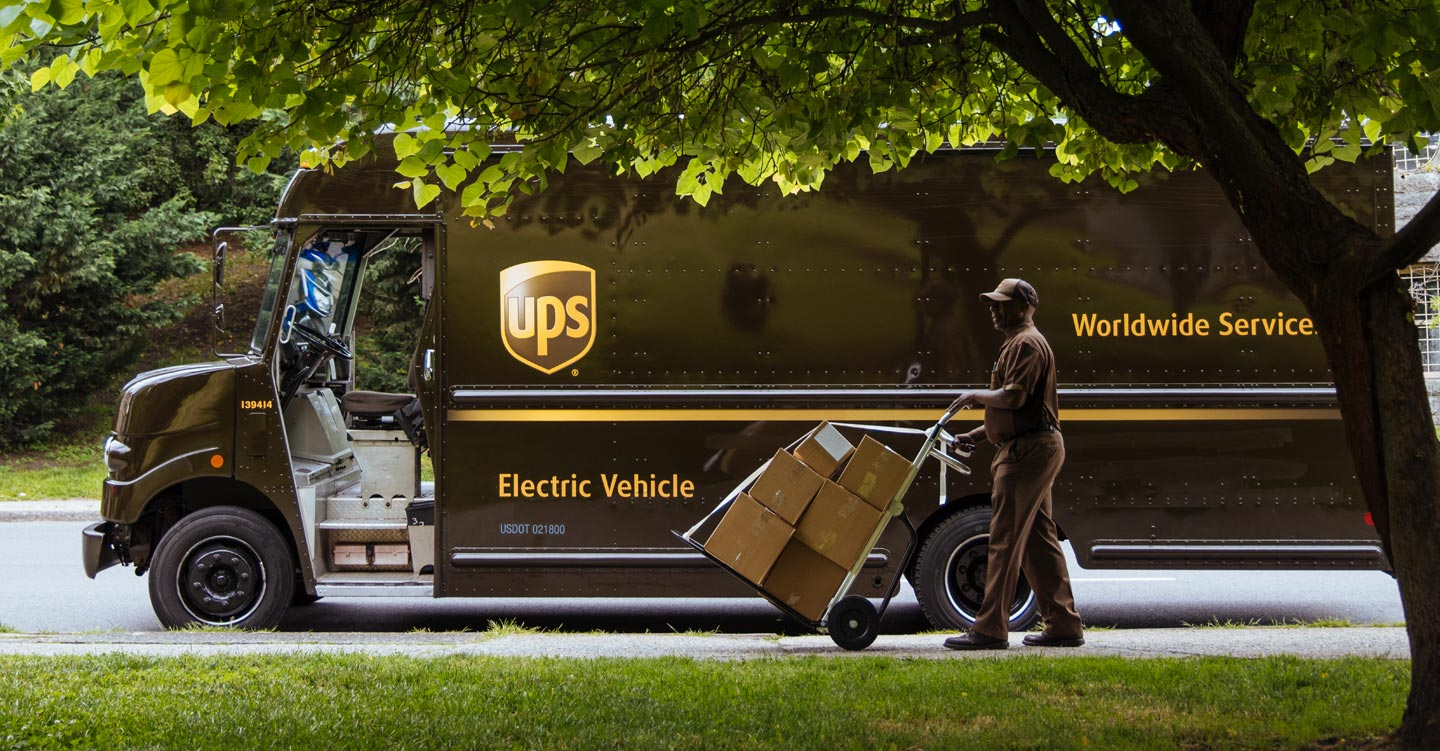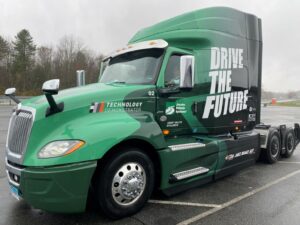“VTNA Announces Layoffs of Up to 350 Workers at Virginia Facility”
Up to 350 employees at Volvo Trucks North America’s New River Valley assembly plant in Dublin, Virginia, are set to be laid off in early April, according to a Volvo Group spokesperson who spoke with Transport Topics on March 28.
The layoffs will affect between 250 and 350 workers from the plant’s manufacturing team. This facility, the largest Volvo Group manufacturing plant worldwide, will experience indefinite job cuts.
The spokesperson attributed the layoffs to a decrease in demand, especially within the long-haul sector, and the completion of the critical phase in the ramp-up of the new VNL model.
The New River Valley facility will continue operating two shifts following the layoffs, with the current workforce at the recently expanded plant standing at approximately 3,600 employees, according to the spokesperson.
In addition, 40 workers at Volvo Group’s Hagerstown, Maryland, powertrain plant were laid off on March 21. These employees were part of the team responsible for producing engines, transmissions, and axles for both VTNA and its sister company, Mack Trucks.
VTNA began mass production of its revamped Class 8 VNL tractor at the 2.3 million-square-foot New River Valley plant in early October. The VNL order book opened in April of last year.
The New River Valley plant underwent a $400 million upgrade in preparation for the production of the redesigned VNL, which debuted in January 2024.
VTNA President Peter Voorhoeve described the VNL’s first major update since its 2017 redesign as “a quantum leap forward,” noting that it marks VTNA’s most significant product launch since 1996.
In addition to the VNL, the New River Valley facility will also manufacture the latest version of the VNR regional-haul tractor. On March 10, VTNA revealed the VNR’s first major overhaul at the American Trucking Associations’ Technology & Maintenance Council Annual Meeting, showcasing a 90% redesign, including a tighter turning radius for improved maneuverability in urban settings.
Over 80% of the New River Valley plant’s workforce was represented by the United Auto Workers Local 2069 when a six-year labor agreement was signed in 2021.
While Local 2069 officials did not respond to a request for comment on March 28, union communications with members suggest that the layoffs were anticipated.
“The layoffs are not a surprise to most of us,” Local 2069 Hourly Bargaining Chair Tony Burnette wrote in the March 21 issue of UAW Pulse. “Given the market downturn and the state of the economy, we will face many more challenges ahead.”
In the same publication, Salary Bargaining Chair Bill Richardson added, “We’ve experienced a significant drop in orders, which appears to be a trend across the industry. Additionally, there are several issues with our new product that need addressing to make it more appealing to future buyers, such as weight, cost, and programming.”
A decline in truck sales in North America and Europe, along with rising production costs in the U.S., negatively impacted Volvo Group’s profit in the fourth quarter of 2024, the company reported on January 29.
Volvo Group posted a profit of $983 million for the most recent quarter, down 10.5% from $1.1 billion in the same period last year. All financial data for Volvo is reported in Swedish kronor, with dollar conversions accurate as of January 29.
VTNA sold 6,448 trucks in Q4, a 19% drop from 7,964 trucks sold in the same quarter the previous year.
A portion of the decline at VTNA was due to slower-than-expected production. The increase in manufacturing costs also stemmed from this, which affected the parent company’s profitability.
Costs exceeded expectations because of Hurricane Helene’s disruption to supply chains in western North Carolina, the ongoing ramp-up of the VNL, and the reintegration of Mack Trucks’ cab assembly operations, CEO Martin Lundstedt explained during an analyst call. Lundstedt noted that these additional costs were anticipated with the VNL launch.
“When launching such significant products, you need to plan for double production and ensure the system’s resilience,” he said. “We expect these challenges to ease over time.”
The redesigns of the VNL and VNR, along with the upcoming launch of a flagship Mack Trucks on-highway tractor, are central to Volvo Group’s goal of securing a 25% market share in North America’s heavy-duty truck segment by 2030.
In 2024, VTNA achieved a 10.2% share of U.S. Class 8 retail sales, while Mack Trucks captured 6.9%, according to Wards Intelligence data. In comparison, VTNA held a 10% share in 2023, and Mack Trucks had 6.8%.
“The untapped potential in North America is enormous, and we now have the opportunity to capitalize on it,” company President Roger Alm told analysts during Volvo Group’s Nov. 14 Capital Markets Day in Dublin.
Disclaimer: This text has been reviewed for grammar using AI technology. The facts and accuracy of the content remain unchanged.
source:https://www.ttnews.com













